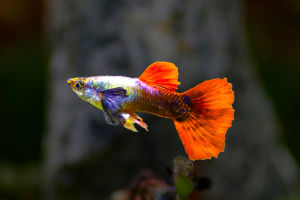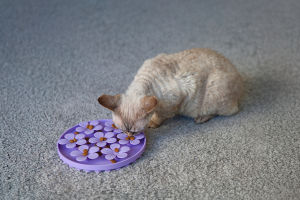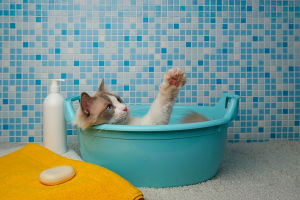Imagine your child's face lighting up with excitement as they bring home a little hamster. These tiny, furry creatures with their twitchy noses and busy paws seem like the ideal pet for kids.
But are they really the right choice for young ones? While hamsters are often marketed as great pets for children, there are a few important things to consider before deciding if a hamster is a good fit for your family.
1. Hamsters Are Low-Maintenance
One of the reasons hamsters are often recommended for children is because they are relatively low-maintenance compared to other pets like dogs or cats. They don't require daily walks or constant attention, which makes them easier for children to care for. Their small size also means they don't take up much space, and they're not as demanding in terms of feeding or grooming.
However, this doesn't mean they don't require care. Hamsters still need a clean cage, fresh food, and water, and they should be allowed to exercise in a hamster wheel or ball regularly. Teaching your child how to maintain the hamster's environment and take care of its basic needs can help them develop a sense of responsibility.
- Actionable Tip: Set a schedule for your child to clean the cage, provide fresh food, and refill water bottles to ensure they stay on track with their pet care duties.
2. Hamsters Can Be Skittish
While hamsters are small and cute, they are also known for being a bit skittish, especially when they're new to their environment. They are nocturnal creatures, meaning they are most active at night and may sleep during the day. This can make it difficult for children to interact with them during the day, which might lead to frustration if a child is eager to play.
Additionally, hamsters may be quick to startle if they feel threatened. Their natural instinct is to hide or burrow when they sense danger, and they may nip if they feel cornered. For young children who may not understand how to handle animals gently, this could lead to both the hamster and the child feeling stressed or uncomfortable.
- Actionable Tip: Teach your child the importance of letting the hamster adjust to its new home before attempting to handle it. Encourage gentle, slow movements and respect for the hamster's space.
3. Hamsters Can Be Fragile
Hamsters, especially younger ones, are quite fragile and can easily be injured if handled roughly. Their bones are small and delicate, and they may hurt themselves if they fall from a height or are squeezed too tightly. This is important to consider if your child is still learning how to handle pets with care.
Even though hamsters may seem tough because of their small size, they are easily stressed, and stress can affect their health. If a hamster is not handled properly, it can lead to long-term stress, which could impact its life expectancy.
- Actionable Tip: Always supervise young children when handling the hamster. Explain to your child that the hamster is fragile and should be treated gently, like a tiny, precious creature.
4. Hamsters Need Proper Housing
While hamsters don't need as much space as larger pets, they do need a suitable cage. A hamster's living environment should be spacious, with enough room for bedding, a wheel for exercise, and some toys to keep them entertained. A small, overcrowded cage can lead to stress and health problems for the hamster.
Hamster cages also need to be cleaned regularly, as hamsters can be quite messy. Depending on the type of bedding you use, it may need to be changed frequently. If your child is responsible for the hamster's cage, it's important to ensure they understand the importance of maintaining a clean and comfortable home for the pet.
- Actionable Tip: Choose a cage that's easy to clean and has enough space for your hamster to roam. Set a regular cleaning schedule to ensure the cage stays fresh.
5. The Right Age for a Hamster
While hamsters can make a good first pet, the age of the child is an important factor in determining whether a hamster is a suitable pet. Younger children, particularly those under 7 or 8, may not yet have the patience or understanding to properly care for a hamster. Hamsters require careful handling and attention to detail, and younger children might find it difficult to respect the hamster's boundaries.
Older children, on the other hand, are more likely to handle the hamster gently, clean its cage, and understand the hamster's needs. They will also be better equipped to follow a regular routine, which is essential for maintaining the hamster's health and happiness.
- Actionable Tip: Consider the maturity and responsibility level of your child before deciding if a hamster is a good fit. If your child is younger, make sure you're ready to take on a large portion of the care.
6. Hamsters May Not Live Long
One important consideration when getting a hamster is their relatively short lifespan. Hamsters typically live for 2 to 3 years, which can be hard for children who form attachments to their pets. This short lifespan means that your child might have to say goodbye to their hamster sooner than they expect, which could be an emotional experience.
While this isn't a deal-breaker, it's something that should be discussed with your child beforehand. They should understand that hamsters have a limited lifespan and that part of caring for them is also accepting that pets don't live forever.
- Actionable Tip: Help your child prepare for the hamster's short life by explaining that taking care of a pet is a special experience, even if it doesn't last forever. You can also teach them about the importance of cherishing the time they have together.
Wrap-Up: Is a Hamster the Right Pet?
Hamsters can be a good choice for children, especially those who are old enough to handle the responsibility of caring for a pet. They are low-maintenance, cute, and teach kids important lessons about empathy and responsibility. However, they also require proper care, a gentle hand, and understanding of their fragile nature.
If you think your child is ready to care for a hamster, it can be a wonderful pet that brings joy to their life. Just make sure to consider your child's age, maturity, and ability to provide consistent care before deciding if a hamster is the right pet for your family. By preparing ahead and setting clear expectations, you can ensure that both your child and the hamster enjoy a happy, healthy relationship.


